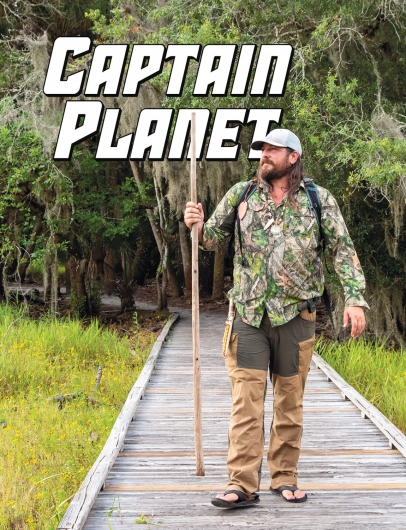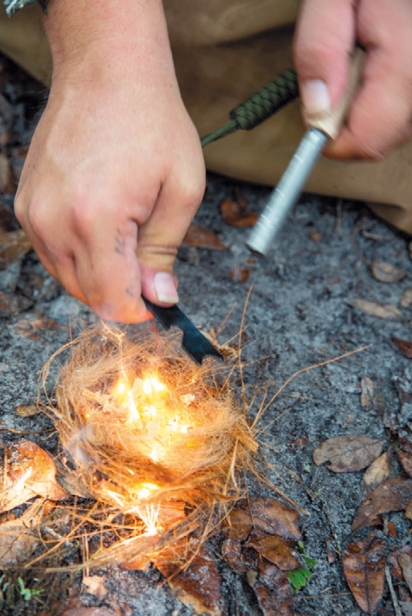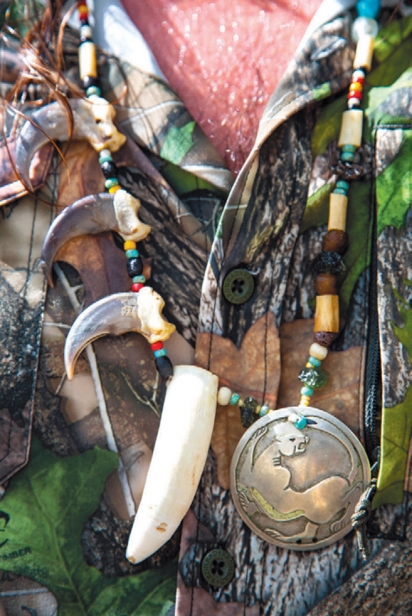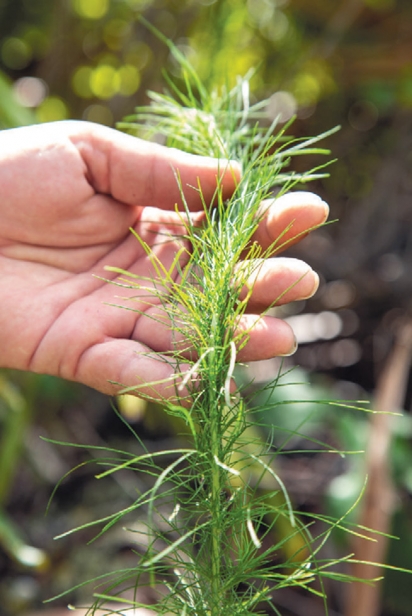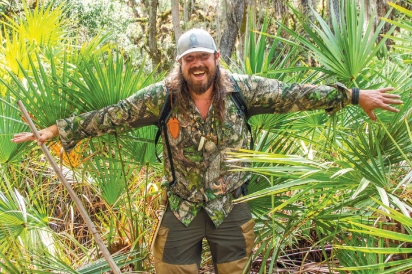Captain Planet
GARRETT STUART AND THE ECO PRESERVATION PROJECT
Garrett Stuart doesn’t have green hair, blue skin, or the ability to fly. Nor is he summoned by the power of five magical rings. And yet the burly, laid-back dude with a uniquely captivating voice has earned his moniker “Captain Planet.”
With a growing population of social media followers and a host of children who want to meet the real-life Captain Planet, one thing the biologist does have in common with the ’90s TBS cartoon character is a mission to teach kids that to save the planet we must first make a true connection with it.
“Since the ’80s we’ve been worried about what kind of planet we are leaving for our children and it hasn’t worked,” says Stuart. “That is why I’ve been focused on what kind of children are we leaving for our planet.”
Although a gifted storyteller and educator, Stuart does more than just speak at events and talk to kids about Mother Earth. Through his business—a nonprofit called the Eco Preservation Project (EPP)—he immerses kids in nature with outdoor adventures like guided nature walks and camping trips. He teaches bushcraft survival skills and depicts how every human footprint is a part of nature’s network.
“My main focus with EPP isn’t just saving the planet but saving ourselves too,” says Stuart, whose blames much of the uptick in our young population’s mental and physical illness on separation from nature. For Stuart, getting kids to recognize their biological ties to the natural world offers a sense of belonging.
“Kids are being taught algebra, but no one is teaching them the biology of sadness or rage. Or the science behind worry. We are mammals, it’s in our DNA,” says Stuart. “Like the raccoon homie. That raccoon can eat a thousand good things and never remember it, but he eats one thing that makes him sick, and he’ll remember it for the rest of his life.”
Although the conveniences of modern life allow a large part of the population to avoid concern about basic biological needs like food, water, shelter, and safety, Stuart says that inherent “worry” is often transferred to other aspects of human life. Those feelings don’t just go away. But an interaction with the natural environment can offer a greater sense of fulfillment.
“When you teach a kid how to start a fire with their bare hands, they become more than [spectators in] life. They become heroes themselves,” says Stuart. “That’s empowerment of a child.”
Stuart also suspects kids’ love affair with video games stems from a feeling of control and creativity through character role play and skills taught to advance in the game. He’d like to see that desire shifted.
“Minecraft is a lot like bushcraft,” says Stuart. “These kids are learning how to whittle a stick to turn into a tiki torch [in the video game] but I bring them out here and take pine sap, moss, and a stick and teach them how to make a mosquito-repelling tiki torch for their camp or how to make primitive shelters—which to a child is like an epic fort you can live in.”
Stuart’s own ties to nature are multifaceted, starting with the disappointment he felt when, as a second grader, he learned of the extinction of his favorite animal, the golden toad.
“I asked my teacher what happened to my favorite toad in the Amazon, and she said it was something scientists called global warming,” he says.
Stuart was also strongly influenced by his Native American Lakota family, which he says inspired him to go about environmentalism from a more spiritual approach. From that experience, he made a profound observation—scientists and shamans were saying the same thing: We are all related.
“Science calls it ‘energy,’ religion calls it ‘spirit,’ the streets call it ‘vibe.’ It’s the same thing,” he says. “I am not telling you what to call it; I am just saying it might be worth listening to it a little bit. It doesn’t matter if you are Christian, Muslim, Native American, or what background you come from. It’s taking a deeper look and actually using science to make things more magical.”
Stuart found a little bit of his own magic when he moved from Kansas to Key West about seven years ago, quickly gaining appreciation for Florida reefs.
“I always wanted to be a bird, and when I was snorkeling I felt like I was flying,” he says. “All the life was below me and I really loved it.”
Stuart spent some time in Puerto Rico and the Pacific Northwest before returning to the Keys, where he worked as a reef scientist, doing ecotourism using what he called citizen scientists: taking people out to conduct science on the reef. He’d also visit different resorts among the Keys to teach tourists about local sea life. That gig earned him the nickname Captain Planet.
“I’d take my homies [sea creatures] to resorts and walk around the pool with them to teach people how to love the ocean a little bit better,” he says.
It was a resort concierge friend who commented Stuart seemed to care more about heart, wind, water, and fire than he did science and therefore ought to be called Captain Planet. Tripadvisor reviews from guests there that day solidified the title.
“I thought it was cool and I shared it,” says Stuart.
Since moving to Florida, Stuart has also spent and continues to spend an immense amount of time in the Everglades. To this day, he vows to always protect the sacred and vital part of Florida’s ecosystem.
As of July, Captain Planet calls Sarasota County his home base although he’ll continue to travel throughout the state building the Eco Protection Project. Stuart hosts both an Amazon Wishlist and an online shop that sells everything from Native American jewelry made by Stuart to saw palmetto–patterned camouflage attire. Site visitors can also see and purchase eco-experiences and artificial mini reefs that can filter 30,000 gallons of water a day and house an average of 300 fish and 200 crab per year.
The money made from sales and donations fuels the free education Stuart provides to children throughout the state.
Ultimately, Captain Planet is not self-righteous or snobby about his cause. He’s a bit of a realist in that sense. Want to be a vegan? Great. Want to eat meat? Avoid feedlots. Single-use plastic? Avoid as much as possible.
But most important: Connect and care.
“I think the one thing I would want a child to take home from an experience with me is that they are a part of something bigger than themselves,” says Stuart. “They are a part of nature, and they are not alone. This is their family. Their home. Our kids feel so lost and so lonely and to me, you know, I like to spend every day like I am throwing kids a welcome home party.
“This is where you come from, Dude.”


